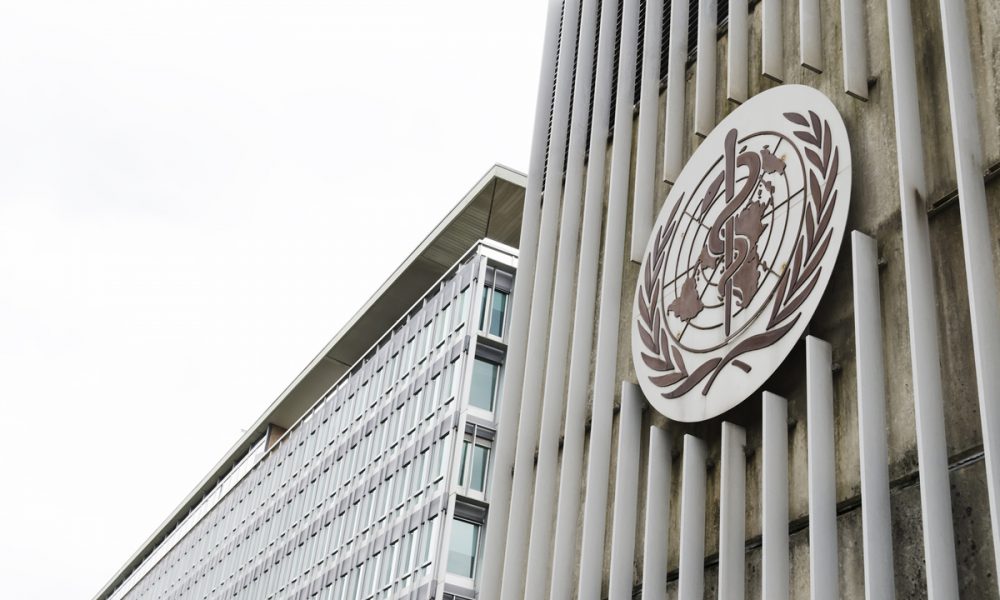The LGBTQ community, Monkeypox, and the WHO
July 26, 2022 12:00 am
What’s that saying? Those who don’t understand history are doomed to repeat it?
Once again, the United States is repeating mistakes made during the COVID-19 pandemic and the AIDS epidemic.
It’s been two months since the first U.S. patient with monkeypox was identified. There are now 1,900 cases that we know of. The nation’s capital, Washington, D.C., leads the country in cases per capita. The opportunity to contain the virus is slipping away.
The country needs a swift, but comprehensive response. We need more vaccines. We need uniform standards and clearer rules about testing and treatment. Trusted officials need to combat myths. And people must get vaccinated, particularly those at the greatest risk.
Testing standards are not uniform, for example, a problem that echoes what happened in the early days of COVID-19. There are not enough vaccines and we are not allocating them to areas hardest hit. Even our tech isn’t right. People looking for vaccines have dealt with crashed websites just like they did at the beginning of the COVID vaccine rollout. And, as AXIOS noted, while there is an effective, FDA-approved antiviral treatment, patients only can get it if they fit within “an onerous 120-page protocol for expanded access to investigational new drugs.”
We know what will happen if we don’t get this right. We’ve lived that reality for two-and-a-half years.
Let me be clear, though. Monkeypox is not COVID-19. It does not spread as easily as COVID since, generally, transmission requires personal or intimate contact. That fact is on our side. (Scientists have not ruled out airborne transmission, however, so this guidance could be updated as we learn more.) As the New York City Department of Health admitted “a lot of cases … are not being diagnosed.” These unknowns are halting signs. If airborne spread is confirmed, or if it’s found asymptomatic carriers can spread Monkeypox, Monkeypox spread will be much worse than we currently anticipate. We are still learning about this new viral strain. We must remember that.
Like we did at the beginning of the AIDS epidemic, we also have a media problem. In the early 1980s, the public was led to believe AIDS affected only men who had sex with men. That messaging, created stigma and fear associated with AIDS. The results were catastrophic.
As pediatric emergency medicine physician Vinay Kampalath wrote in STAT News, “Pathogens don’t discriminate like humans do — they have no innate capability of discerning race, sexual orientation, religion, or nationality.” Whether gay, straight, or bisexual, if you have close contact with someone with monkeypox, you’re at risk. Even so, it took the Center for Disease Control and Prevention until this month to update its guidance to state, “Anyone who has been in close contact with someone who has monkeypox can get the illness.”
At present, however, not everyone has the same statistical chance of getting the virus because the virus is more prevalent in some communities over others. So while we need to be careful about reinforcing stigma, we do need to target relevant messaging to the people and places most at risk. And right now, that appears to be men and trans women who have sex with men.
We can tailor monkeypox awareness campaigns and focus resources to certain groups of individuals who are most effected while educating the public at large. As the virus spreads and as vaccines become more available, public and private vaccine campaigns must target people of all orientations and racial and ethnic backgrounds. Ultimately, if a person does not see themselves in a public health campaign, they will not protect themselves.
While government officials get their act together, Americans must take charge of their own health. Like COVID-19, we can reduce spread with a dose of common sense and personal responsibility. Here’s what you can do:
- Register to get vaccinated;
- Contact your healthcare provider if you develop rashes or abnormal lesions;
- Avoid sexual contact if you’re having flu-like symptoms (COVID is still a risk);
- Avoid sexual activity or physical skin-to-skin contact if rashes or lesions are found;
- Because linens can be contaminated, sleep in a different room if your partner is infected
- Cover lesions; and
- Stay informed.
One great way to stay informed is to join DC Health, the Washington Blade, and me at a special Monkeypox Town Hall on Monday, July 25th at 7pm at the Eaton. I’ll be moderating a panel of experts to answer your questions. Join us.
Dr. N. Adam Brown is a practicing emergency medicine physician, founder of a healthcare strategy advisory group ABIG Health, and a professor of practice at the University of North Carolina’s Kenan-Flagler Business School. Previously he served as President of Emergency Medicine and Chief Impact Officer for a leading national medical group. Follow him on Twitter @ERDocBrown.
Categorised in: News, Washington Blade
